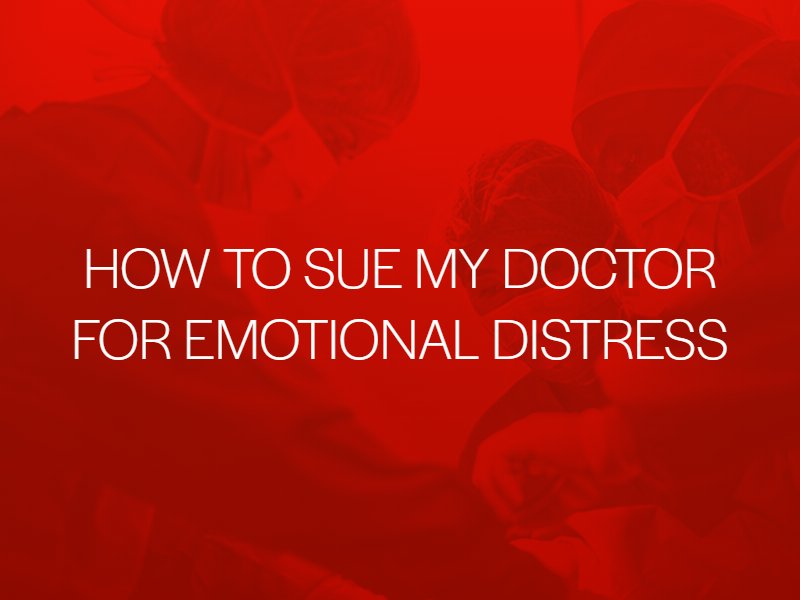Can I Sue My Doctor for Emotional Distress?
Posted in Medical Malpractice,Personal Injury on December 21, 2018
Medical malpractice is a serious violation of a patient’s right to proper care. Depending on the nature of the malpractice situation, a negligent physician could cause a patient to experience severe or permanent injuries. A patient could suffer significant emotional distress as a result of the doctor’s mistake or oversight, especially if the negligence will affect the patient for the rest of his or her life. In some cases, emotional distress can be just as damaging to a patient as physical injury.

What Is Emotional Distress?
Emotional distress can refer to any unpleasant emotional reaction that stems from someone else’s conduct. Generally, this includes mental anguish, humiliation, shame, fear, and psychological damages such as post-traumatic stress disorder. In a courtroom setting, emotional distress is a type of general, or non-economic, damage. A plaintiff may have the right to file a claim for emotional distress if a defendant intentionally or negligently caused the distress.
Emotional distress is a common damage awarded in serious personal injury claims. In cases involving permanent disabilities, for example, a jury may award pain and suffering damages that include emotional distress for the lifetime of changes the plaintiff will have to endure. The age of the plaintiff, severity of the personal injuries, and many other factors can affect the value of an emotional distress award. Typically, the more severe the injuries, the higher the non-economic damages.
If you have a medical malpractice claim that involves a serious physical injury, such as permanent paralysis from a surgeon negligently nicking a nerve during spinal surgery, you can most likely file a claim against your doctor for emotional distress. You will have to prove the defendant negligently or purposefully inflicted your damages, and that you suffered emotional distress as a result. However, most courts will award this type of damage in a successful malpractice claim involving a major injury.
Emotional Distress Without Physical Injury
Most physicians attempt to do their best in terms of patient care, and do not intentionally cause patients harm. That being said, sometimes physicians make mistakes or act negligently in ways that negatively affect their patients. Mistakes and acts of negligence lead to many patients wondering about their rights to file claims against their doctors – even if they did not suffer a physical injury or worsened health prognosis.
Patients trust their doctors with their lives. When a physician betrays this trust with an act of medical negligence such as misdiagnosis, lack of informed consent, surgical error, or a medication mistake, a patient can suffer a range of unpleasant emotions. For example, if a physician mistakenly diagnoses a person with terminal cancer when in reality the illness has a high chance of successful treatment, the patient could suffer significant mental anguish from the mistake. Does the patient have the right to file a claim even without a physical injury? It depends.
It is difficult to win a medical malpractice case that involves an emotional distress claim without physical injury. In general, recovering for emotional distress or anguish requires that the plaintiff also suffered a physical injury from the physician’s malpractice. It is possible, however, if a plaintiff can prove negligence and show evidence of significant emotional distress because of the physician’s mistake. A plaintiff will have to show that the defendant could have caused him or her harm, even if physical harm never occurred.
Contact Us For a Free Consultation
Filing a medical malpractice claim against a doctor for emotional distress could result in financial compensation in certain circumstances. The first step toward filing your claim should be contacting a Philadelphia medical malpractice lawyer . An attorney can review your case and help you understand your rights as a patient who suffered emotional, mental, or psychological harms. It may be possible to bring a claim against your doctor with or without physical injuries.

